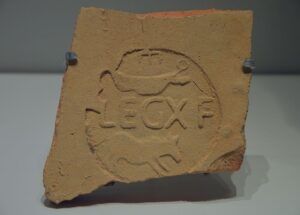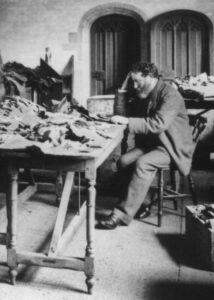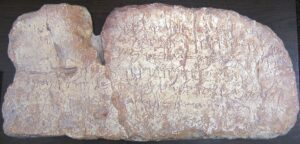Legion of Destruction

Carole Raddato from FRANKFURT, Germany, CC BY-SA 2.0 <https://creativecommons.org/licenses/by-sa/2.0>, via Wikimedia Commons
The discovery of an illegal cache of ancient tiles and bricks sheds light on a sad chapter in our history
When detectives from the serious crimes unit of the Israel Police came across some covered crates in the trunk of a car in Beit Hanina, an Arab neighborhood in northeast Yerushalayim, they never expected that they had made an archaeological discovery.
But when they opened the crates, they found a large number of 2,000-year-old tiles and bricks stamped with the emblem of the Roman Tenth Legion. Investigators from the Israel Antiquities Authority (IAA) suggested that they might have been part of the heating plant of a bathhouse used by Roman soldiers. The owner of the car admitted that the illegally excavated items had come from a site somewhere near Chevron. Of course, the plan was to sell these antiquities on the black market.
The Wrong Day for Pesach?
 A calendar controversy in the tenth century, which was forgotten until it surfaced in the Cairo Genizah, meant that Jews in different communities celebrated Yom Tov on different days.
A calendar controversy in the tenth century, which was forgotten until it surfaced in the Cairo Genizah, meant that Jews in different communities celebrated Yom Tov on different days.
As Pesach approaches, Jewish communities everywhere race to prepare. But imagine if the Jews across town were still preparing for Pesach while you were sitting down to the Seder—because the two communities couldn’t agree on which day Pesach started.
The Jewish calendar has served as a unifier of the Jewish people for about a thousand years. But it was not always that way. In fact, in the year 922 CE, not all Jews observed Pesach on the same date. How could this be? you will ask; after all, sometime in the fourth century CE, the Jewish people stopped determining the calendar by lunar observation and instituted a calculated calendar. How could it be that Jews who followed the Babylonian Sages would observe Pesach and even Rosh Hashanah two days before their brethren in Eretz Yisrael?
The Writing on the Wall?
 The claim of a controversial expert to have deciphered an ancient inscription is met with doubt
The claim of a controversial expert to have deciphered an ancient inscription is met with doubt
You cannot imagine how thrilled I was when I saw the headline “Proof of Biblical Kings of Israel, Judah Deciphered on Jerusalem Rock Inscriptions.” The subtitle read, “Detailed Inscriptions of Eighth-Century BCE Judean King Hezekiah Discovered in Monumental Archaeological Discovery.”
But as I began to read the article, academic skepticism began to deflate my elation. I immediately noted that this announcement wasn’t one of the usual “good news for every holiday” pieces from the Israel Antiquities Authority. Instead, it originated with a University of Haifa professor who had previously been associated with sensational but highly questionable readings of ancient texts.
I continued reading and became increasingly skeptical. The article claimed that an ancient Hebrew inscription that had been deciphered referred explicitly to the digging of the Siloam tunnel (Shiloach in Tanach), providing its exact date. It went on to refer to inscriptions carved in rock walls, both in the Siloam tunnel and elsewhere in ancient Yerushalayim, that described the activities of this great king. These inscriptions had supposedly gone unrecognized until this professor deciphered them.
